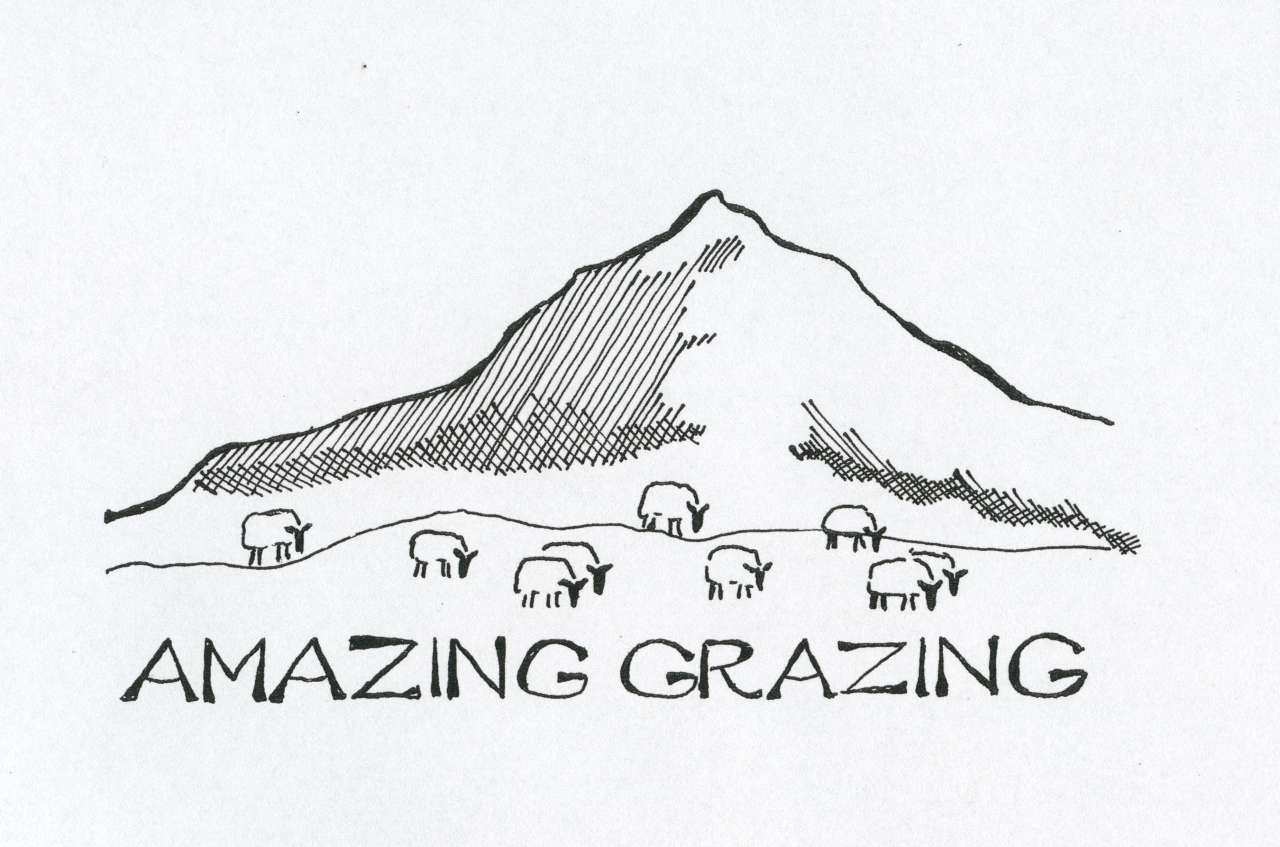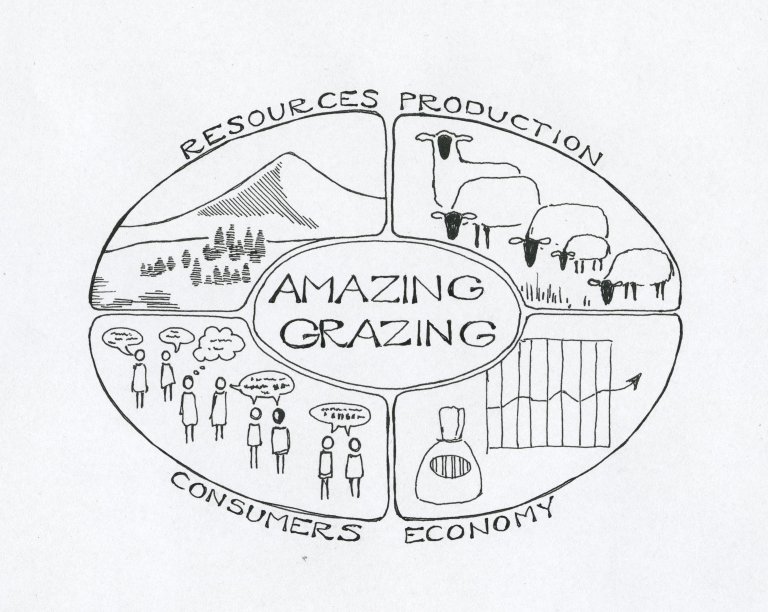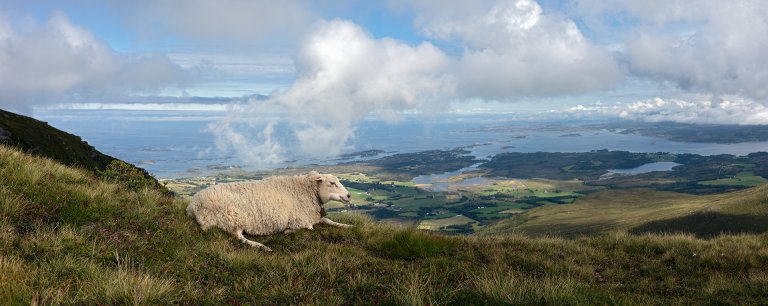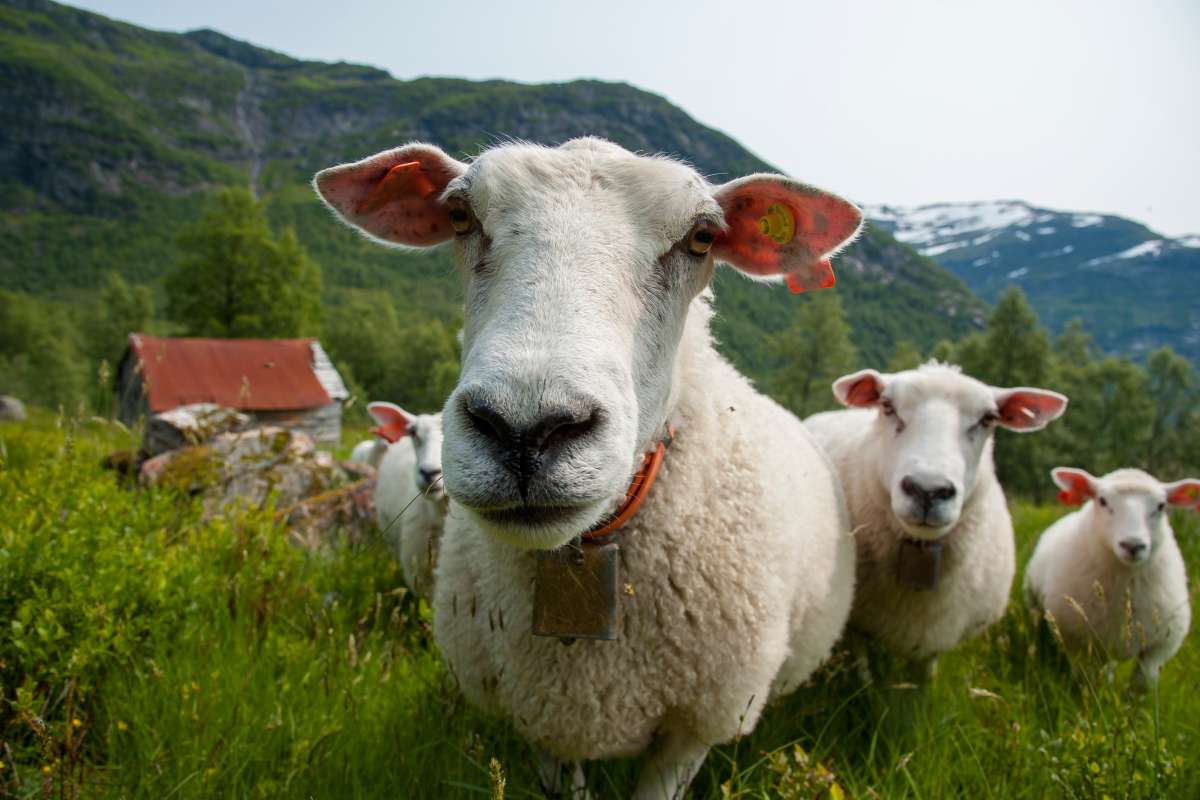Division of Forest and Forest Resources
#Amazing grazing - bærekraftig kjøtt og ull fra sau som beiter i norsk utmark

End: dec 2025
Start: may 2021
Kjøtt og ull fra norske sauer kommer fra gårder med ulikt ressursgrunnlag, ulike driftsopplegg og ulik ressursbruk. I dette prosjektet skal vi undersøke sauebonden sitt driftsopplegg, forbrukeren sin innsikt, og rammevilkårene som både bonden og forbrukeren må forholde seg til. Hvordan kan produksjonen forbedres, og hvordan kan forbrukeren få mer kunnskap og nærhet til hva beitebruk bidrar med gjennom produktene?
Project participants
Gunnar Vittersø Hanne Torjusen Ingun Grimstad Klepp Tone Skårdal Tobiasson Rose (Ildri Kristine) Bergslid Matthias Koesling Ola Flaten Håvard Steinshamn Årolilja Svedal Jørgensrud

| Status | Active |
| Start - end date | 01.05.2021 - 31.12.2025 |
| Project manager | Lise Grøva |
| Division | Division of Forest and Forest Resources |
| Department | Wildlife and Rangelands |
| Partners | Forbrukerforskningsinstituttet SIFO ved OsloMet, Norsk senter for økologisk landbruk (NORSØK) og over 30 ulike aktører i verdikjeden kjøtt og ull fra sau |
| Total budget | 12000000 |
| Funding source | JA/FFL |
Et mål i prosjektet er å belyse hva som kan bidra til at kjøtt og ull fra sau verdsettes høyere. Prosjektet ønsker å påvirke diskusjonen rundt bærekraft, media sin omtale av det og hvordan politikk blir formet. Å formidle til dels kompliserte vurderinger på en lettfattelig måte, som fremmer en bedre forståelse av beitedyrs plass i norsk natur, betydning for klima, og for god ressursutnyttelse – er sentralt for at prosjektet skal lykkes. Kan norsk sauehold bidra til å nå noen av FN’s bærekraftsmål?
Dette 4-årige prosjektet er finansiert av Forskningsmidler for jordbruk og matindustri (FFL/JA) og over 30 ulike næringsaktører i alle deler av verdikjeden for kjøtt og ull deltar. Prosjektet har tilgang til et solid internasjonalt kontaktnett som vil bidra til å løfte temaet opp på et globalt nivå, med fokus på lokale løsninger.
Aktører i verdikjeden og sauebønder med forskjellige driftsformer vil sammen med forskere fra Norsk institutt for bioøkonomi (NIBIO), Forbrukerforskningsinstituttet SIFO ved OsloMet og Norsk senter for økologisk landbruk (NORSØK) øke kunnskapen rundt bærekraftig kjøtt og ull.
Prosjektet ledes fra NIBIO Tingvoll. Den brede deltagelsen fra næringslivet i alle ledd av verdikjeden, vil sikre at kunnskap både deles og formidles, og kan gi overføringsverdi til andre beitedyr og deres produkter.
I regi av prosjektet blir det jevnlig holdt videoforedrag. Nedenfor finner du de i opptak.
Publications in the project
Abstract
No abstract has been registered
Abstract
No abstract has been registered
Abstract
Vi har fått nordiske råd for hva som er best å spise for helsa og miljøet. For rødt kjøtt er grensa maks 350 gram i uka. Både kua og grisen er definert som rødt kjøtt, men her stopper likheten. Kua er drøvtygger og grasspiser. Grisen er alteter og kan ikke leve på gras. Hvis vi spiser kvoten for rødt kjøtt i form av svin, går det dårlig med beitedyra og norsk matsikkerhet.
Abstract
No abstract has been registered
Abstract
No abstract has been registered
Abstract
No abstract has been registered
Abstract
No abstract has been registered
Abstract
Norsk matsikkerhet handler om å produsere nok mat til folket selv om importen stopper. Vi må ikke slå i hjel kua med usikre tall om karbon og tall om dagens forbruk av kraftfôr, slik høyskolelektor Thomas Cottis prøver på i sitt motsvar 17. desember til vårt innlegg i Aftenposten, «Kjøtt er ikke kjøtt».
Abstract
Sau, geit, rein, ku og gris. Hvem hører ikke hjemme her? Svaret er grisen. Den kan ikke leve av gras. Likevel er grisen gruppert sammen med grasetere og definert som rødt kjøtt. Dette blir det full forvirring av når både helse- og miljøråd skal gis.
Abstract
Det snakkes om overproduksjon av mat. Og det snakkes om at selvforsyningsgraden må økes. Likevel jobbes det målrettet med å redusere etterspørselen av kjøtt produsert på norsk gras.
Authors
Narta ElshaniAbstract
Sheep production systems in Norway present complexity in the same way as other systems partaking in the climate challenges. Sustainability of these systems cannot be defined through single-impact indicators; hence a broader range of sustainability dimensions and trade-offs must be assessed. The present research uses the Sustainability Assessment and Monitoring RouTine (SMART): a multi-criteria sustainability assessment based on the Sustainability Assessment of Food and Agriculture Systems (SAFA) Guidelines which gathers data on the farms’ performance through 327 indicators across 4 dimensions. Eight sheep farms in Norway were selected for assessment: four low-land coastal farms, and four inland mountain farms. Management practices which support sustainability were identified in all farms: high animal welfare, high number of days of access to pasture for the livestock, no/low use of synthetic chemicals, good water management, and high quality of life for farmers. Management practices which hinder sustainability and key areas for improvement were also identified: increased onfarm energy production, decreased use of externally sourced concentrate feed, and increased farmers’ knowledge about externally sourced inputs. Some differences between the coastal and inland farms were also identified which were related to number of days of access to pasture for livestock, water consumption, participation for farmers in trainings and additional education, and political involvement. Using the SMART-Farm tool aided the process of identifying practices and systematically evaluating them through a global sustainability perspective. Aggregated results from the SMART-Farm assessment indicated a high degree of goal achievement across dimensions. The farms scored on average above 80% on the Environmental Integrity and the Social Well-Being, and lower on the Economic Resilience and the Good Governance dimensions (76% & 71% respectively). To evaluate these results, a qualitative expert elicitation method was employed; this provided insight into shortcomings which were a result of the context-generic approach that the tool has and lack of inclusion of stakeholder participation in indicator selection and aggregation process. These shortcomings are important to consider when interpreting the results of numeral integration assessments which are used for decision-making. However, evaluating these scores was also a valuable outcome in itself since it uncovered knowledge gaps about the topic of sustainability of sheep farming in Norway.
Abstract
FNs klimapanel (IPCC) foreslår å utvide klimagassregnskapet med tall fra alternative beregningsmåter for gassenes oppvarmende effekt. En av metodene kalles GTP, som er en forkortelse for Global Temperature-change Potential. Brukes denne, vil landbrukssektoren halvere sin andel av globale klimagassutslipp fra dagens anslag på 14 prosent til 7,2 prosent. Hovedårsaken til denne reduksjonen er at metanutslippene vektes mindre med GTP enn med gjeldende metode (GWP; Global Warming Potential). Legges GTP til grunn, har altså sauen og kua vesentlig mindre del av skylda for global oppvarming enn hva vi har trodd fram til nå. Dette bør ha konsekvenser for hvilke tiltak som igangsettes for å nå en samlet klimagassreduksjon. Kanskje er ikke 60 prosent færre sauer og ammekyr i Norge løsningen på klimakrisa, slik enkelte hevder?
Authors
Lise GrøvaAbstract
No abstract has been registered
Abstract
No abstract has been registered
Abstract
No abstract has been registered
Abstract
No abstract has been registered
Abstract
No abstract has been registered
Abstract
Vi har fått en ny regjering som har gitt etter for landbrukets krav om at drøvtyggerne våre ikke skal ilegges klimaavgift. Men hva om det snille lammet får juling i Brussel fordi ikke alle beregninger som skal brukes i forbrukerrettet miljømerking er samme ulla?
Abstract
Økt bruk av utmarksbeite står på den nye regjeringens arbeidsliste. Skal dette lykkes bør det umiddelbart settes i verk tiltak for å rette opp skaden som forgjengerne la opp til i sin opplysningsstrategi for et bedre klima. Dette må prioriteres høyt - før både rekruttering av folk til næringa og selvforsyning av mat er en saga blott.

